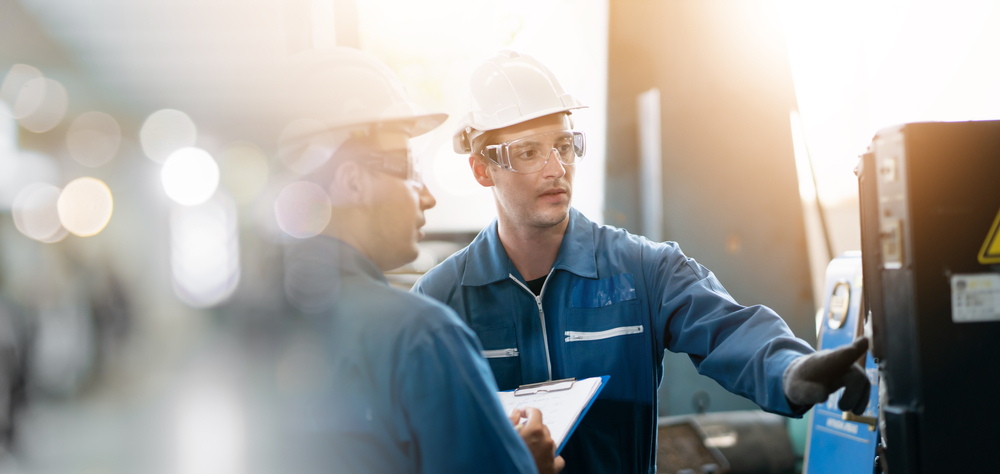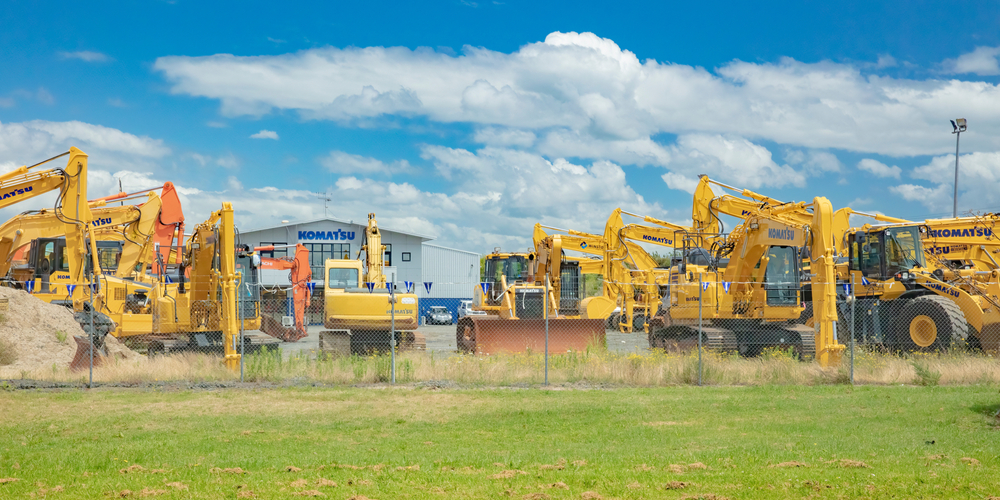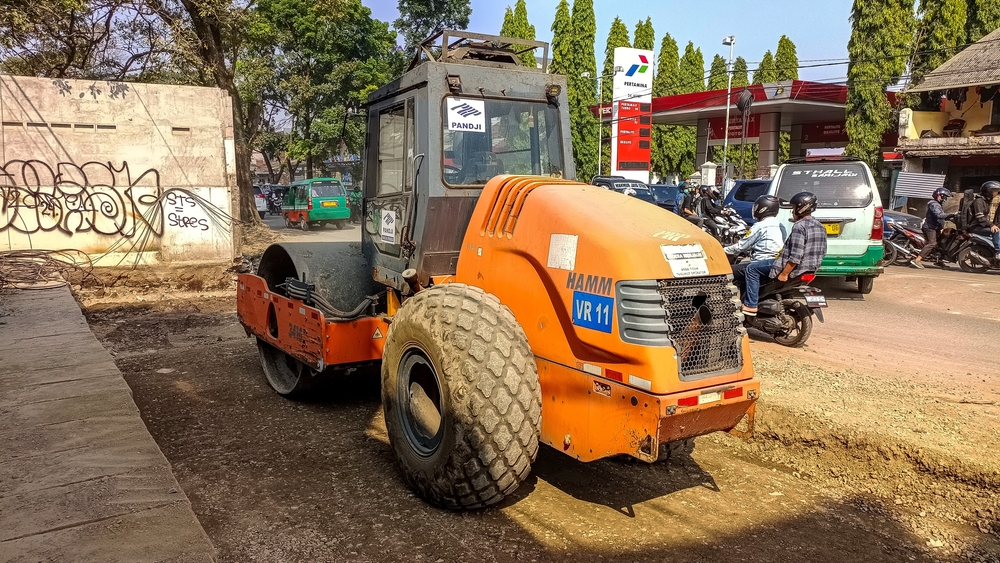In the construction industry, having the right equipment at your fingertips is crucial to the success of any project. Whether it’s a towering skyscraper, a sprawling bridge, or a cozy home, construction equipment plays a vital role in turning blueprints into reality. But with such a wide array of machinery needed, construction companies face a big decision: should they rent or buy their equipment? This choice isn’t just about availability; it’s about managing costs, adapting to project demands, and ensuring efficiency across the board. As we dive into the world of renting vs buying construction equipment, we aim to shed light on the pros and cons of each option, helping you make informed decisions that align with your project needs and financial strategies.
Pros and Cons of Renting Construction Equipment:
Pros
Cost-effectiveness for Short-term Projects: Renting construction equipment is often the most financially savvy choice for short-term projects. Without the need for a large upfront investment, construction companies can allocate their resources more efficiently, only paying for equipment when it’s needed. This approach allows for greater flexibility in managing project budgets and can significantly reduce the overall cost of short-duration projects.
Access to a Wide Range of Equipment Without Long-term Commitment: One of the biggest advantages of renting is the access it provides to an extensive inventory of the latest equipment. Renting allows companies to select the perfect tools for each job, adapting to the specific requirements of different projects without the commitment and capital investment of purchasing. This flexibility is invaluable in an industry where project needs can vary widely.
Reduced Maintenance and Repair Responsibilities: Renting construction equipment also means that the responsibility for maintenance and repairs largely falls on the rental provider. This not only reduces the workload for the construction company’s maintenance team but also helps avoid unexpected repair costs. Companies can focus more on their construction projects, knowing that the equipment will be in good working condition, ready for use.
Cons
Potentially Higher Overall Cost for Long-term Projects: While renting is cost-effective for short-term projects, the cumulative cost of renting equipment for longer periods can surpass the purchase price of owning the equipment outright. For projects that stretch over several months or years, buying may become a more economical choice in the long run.
Limited Customization Options: Rental equipment typically comes in standard configurations, which may not always perfectly match the specific needs of a project. When renting, construction companies might have to work around these limitations, potentially affecting efficiency and productivity. The lack of customization options can be a significant drawback for projects requiring specialized equipment.
Dependency on Equipment Availability from Rental Providers: Relying on rental providers for construction equipment means being subject to their inventory and availability. During peak construction seasons, the demand for certain types of equipment may outstrip supply, leading to delays or the need to compromise on the choice of machinery. This dependency can introduce uncertainty into project planning and execution, affecting timelines and project outcomes.
Pros and Cons of Buying Construction Equipment
- Pros:
Long-term Cost Savings for Frequent and Extended Use: When construction equipment is required regularly and for extended periods, purchasing can lead to significant long-term cost savings. The initial investment is offset by the elimination of rental fees, particularly beneficial for companies with continuous or multiple concurrent projects. Owning equipment provides financial predictability and can be more economical over time.
Customization Options Based on Specific Project Needs: Buying construction equipment offers the advantage of customization. Companies can select machines with the exact specifications required for their projects or modify equipment to suit particular needs. This level of customization enhances efficiency and productivity, ensuring that the equipment can perform optimally for the intended tasks.
Asset Ownership and Potential Resale Value: Ownership of construction equipment not only adds valuable assets to a company’s balance sheet but also offers the potential for resale value. Well-maintained machinery can be sold when it’s no longer needed, recouping some of the initial investment. Additionally, owning equipment outright provides collateral value, which can be beneficial for securing business financing.
- Cons:
Initial High Upfront Costs: The most significant barrier to buying construction equipment is the high initial cost. Purchasing new or even used machinery requires a substantial upfront investment, which can be prohibitive for smaller companies or startups. This capital outlay can impact cash flow and limit financial flexibility for other investments.
Maintenance and Repair Responsibilities: Owning construction equipment comes with the responsibility for its maintenance and repairs. Keeping machinery in good working condition requires a dedicated effort, including regular servicing, repairs, and part replacements, which can add to the overall cost of ownership. Companies must have skilled personnel or reliable service providers to manage these tasks effectively.
Depreciation Over Time Affects Asset Value: Like any physical asset, construction equipment depreciates over time. The value of the machinery decreases with use and age, affecting the company’s asset value and the potential resale price. Depreciation also has tax implications, although it can sometimes be offset by tax deductions for business assets.
Factors Influencing the Decision
When faced with the choice between renting and buying construction equipment, several key factors come into play. Understanding these can help guide you to a decision that aligns with your project needs and business strategy.
Project Duration and Frequency
The length and number of your projects are crucial in determining whether to rent or buy. For short-term projects or those with infrequent equipment needs, renting often makes more sense, providing the flexibility to use the right equipment only when necessary without a significant financial commitment. On the other hand, if your projects are ongoing or you have a steady stream of work requiring the same type of equipment, purchasing may be more cost-effective in the long run.
Budget Considerations
Your current financial situation and budget constraints play a significant role in the decision-making process. Renting requires less immediate capital, making it an attractive option for managing short-term cash flow, especially for smaller companies or those just starting. Conversely, buying equipment is a capital-intensive decision but one that may offer savings and financial benefits over time, particularly for well-established companies with sufficient resources.
Maintenance Capabilities and Costs
Consider your ability to handle maintenance and repairs, both in terms of skills and costs. Owning equipment means taking on the responsibility for its upkeep, requiring either an in-house team with the necessary expertise or a relationship with service providers. Evaluate whether your operation can handle these additional tasks and expenses. Renting, however, typically places the burden of maintenance on the rental company, potentially offering peace of mind and operational efficiency.
Flexibility and Scalability Requirements
The need for flexibility and scalability in your operations can significantly influence the choice between renting and buying. Renting provides the flexibility to adapt to project-specific needs quickly, allowing you to scale your equipment inventory up or down as required. This option is particularly valuable in responding to changing market conditions or project scopes. Buying equipment, while less flexible, may be suitable for businesses with well-defined, consistent equipment needs over time.
Whether you’re leaning towards renting or buying construction equipment, ESP Ltd has you covered with a wide array of options tailored to meet the diverse needs of your projects. We understand the complexities and challenges of the construction industry, and our team is dedicated to providing solutions that enhance efficiency, reduce costs, and support your business goals. With ESP Ltd, you gain access to the latest, high-quality equipment and a team of experts ready to assist you in making the best choice for your operation.









